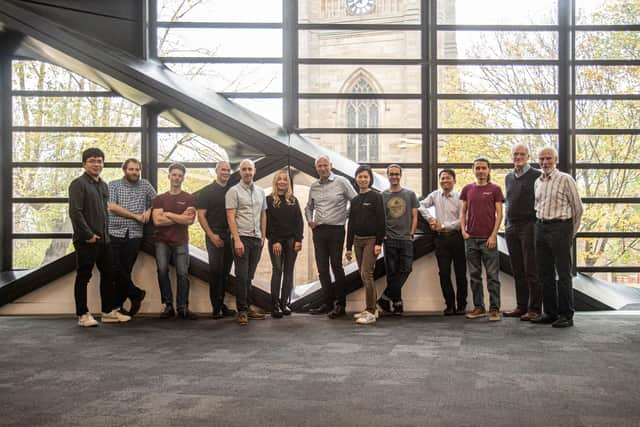University of Sheffield start-up secures £4m investment for ‘world first’ sensor used in self-driving machines
Phlux Technology has secured £4 million in seed funding in a round led by Octopus Ventures, and hopes to be a game changer for robotics and self-driving machines.
The company has designed high-performance sensors which it claims will surpass the capabilities of the silicon-based sensors currently used in such technologies.
Advertisement
Hide AdAdvertisement
Hide AdAmy Nommeots-Nomm, deep tech investor, Octopus Ventures, said: “We are delighted to be leading this investment round for Phlux Technology, as this innovative breakthrough is critical to the future direction of transport, communication and emission monitoring systems.


“Today, there is market consolidation among the silicon-based sensor companies, precisely because they can’t solve the problem that Phlux has cracked, making its potential hugely exciting.”
Created using the semi-metal element antimony, the sensors are designed to dramatically improve performance in LiDAR systems - the technology behind the control and navigation of autonomous machines, such as cars and robots.
The sensors developed by the Sheffield start-up are the world’s first antimony-based LiDAR sensor chips, with architecture that is 10 times more sensitive and has 50 per cent more range compared to silicon-based sensors.
Advertisement
Hide AdAdvertisement
Hide AdIts design also reduces the cost of manufacture of LiDAR sensors, opening them up to mass market adoption.
Ben White, CEO and co-founder of Phlux Technologies, said: “Industry will never achieve full autonomy with LiDAR if it relies on silicon-based sensors, so our approach will reshape the sensor market for robotics and self-driving machines.
“We are delighted to be spinning Phlux out of the University of Sheffield at a time when it has ambitious plans to become a global centre of excellence for semiconductor research, and the UK is looking to demonstrate its capabilities as a global science superpower.”
Infrared sensors, such as those built by Phlux, can also be used in enabling Internet in remote regions, along with having uses in satellite communications, fibre telecoms, autonomous vehicles, gas sensing and quantum communications.
Advertisement
Hide AdAdvertisement
Hide AdPhlux Technology was founded by Ben White, CEO, Professor Jo Shien Ng and Professor Chee Hing Tan, who met at the University of Sheffield where they researched novel semiconductor materials and devices for infrared detection.
According to the Semiconductor Applications Catapult, the UK compound semiconductor market was worth around $8bn in 2020, rising to $11bn in 2024, which is around eight per cent of the global market.
The global market for compound semiconductor components is expected to reach $43 billion by 2025.
The range of investors backing the start-up include Northern Gritstone, an investment company seeking to boost the commercialisation of university spin-outs in the North of England.